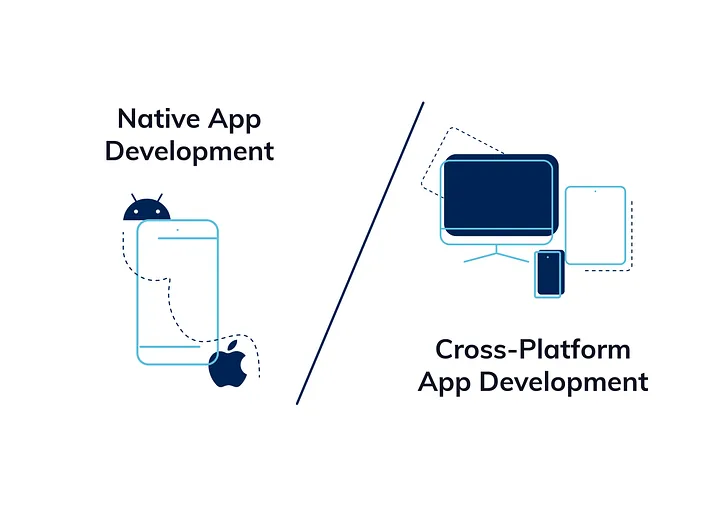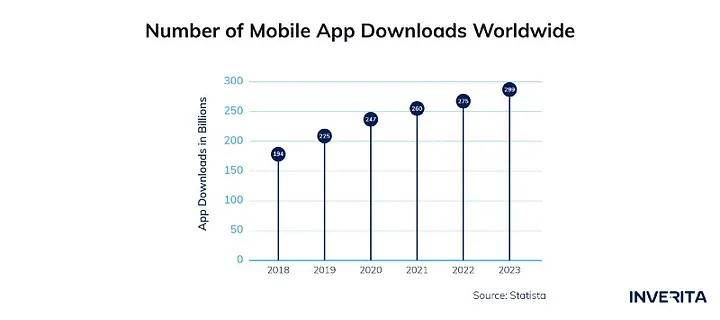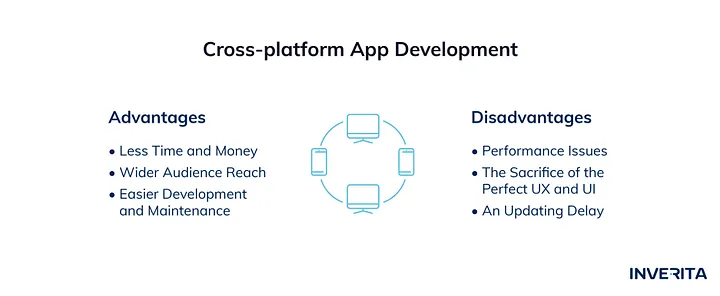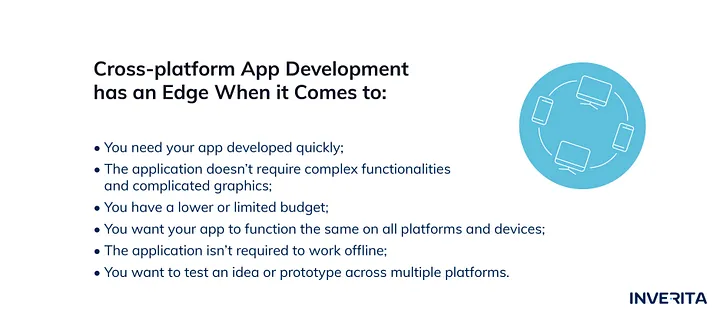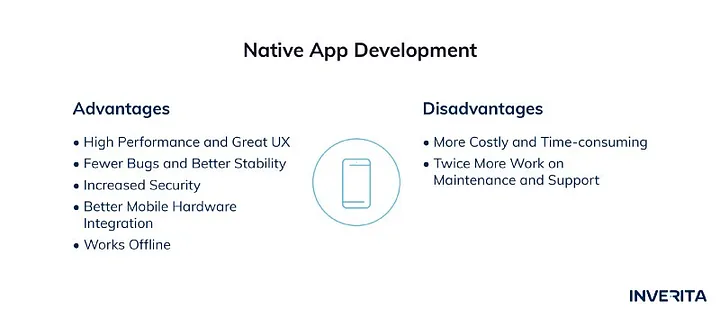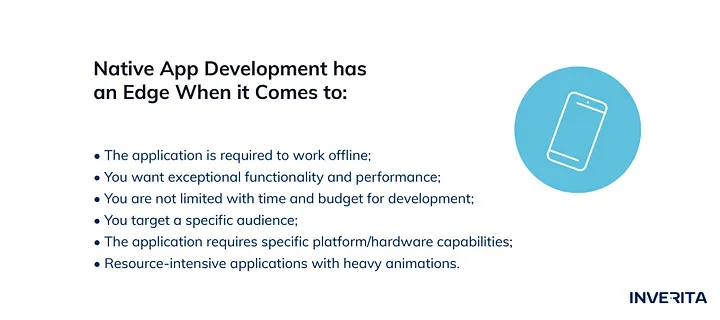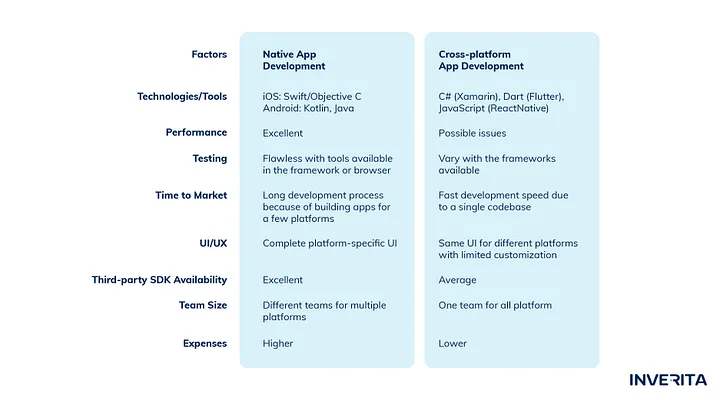High Performance and Great UX
In the battle of native app development vs cross-platform in the matters of UX, the native approach is an obvious winner. Designing UI for iOS and Android differs a lot so developers can customize and implement design faster and easier without worrying about the dependencies of different operating systems.
What is more, the interface of native apps is more familiar and intuitive to users which results in higher retention.
Native applications also are faster and perform better as they are built only for a specific set of devices and are optimized for different screen sizes and system versions
Fewer Bugs and Better Stability
Native applications receive critical fixes and new SDKs from iOS and Android earlier in comparison to cross-platform apps. Delays in receiving new SDKs and fixes can become the reason for new bugs and vulnerabilities.
Apple and Google also continuously support and enhance their mobile operating systems, providing new interfaces, SDKs, and different development tools which significantly speed up the development process and give developers access to the most recent features and updates. Consequently, native apps benefit from stability.
Better Mobile Hardware Integration
Native apps take full advantage of the device’s hardware functionality such as GPS, camera, and so on. They also receive exclusive APIs from iOS and Android to their developer communities.
Increased Security
Native app development provides more robust security features compared to cross-platform. Usually, native app developers have less difficulty and spend less time implementing intelligent fraud detection, file encryption, etc.
The developers also have access to all built-in security features that are available on the operating system. For example, if you’re developing an iOS app, multi-factor authentication, Apple’s face idea, etc can be integrated into the app.
Offline Performance
Native apps run well without an Internet connection, which is also one of the main factors why people opt for it in native vs cross-platform mobile app development opposition. A stable connection is not always available but with native apps, your users will always have access to their maps, music, to-do lists, etc.
Disadvantages of Native App Development
Higher Costs and Longer Development Time
Native app development is more expensive due to multiple factors. First of all, people usually want their app to be available on both iOS and Android devices. Building two stand-alone apps significantly increases the budget as you need more people, more time, and more maintenance.

